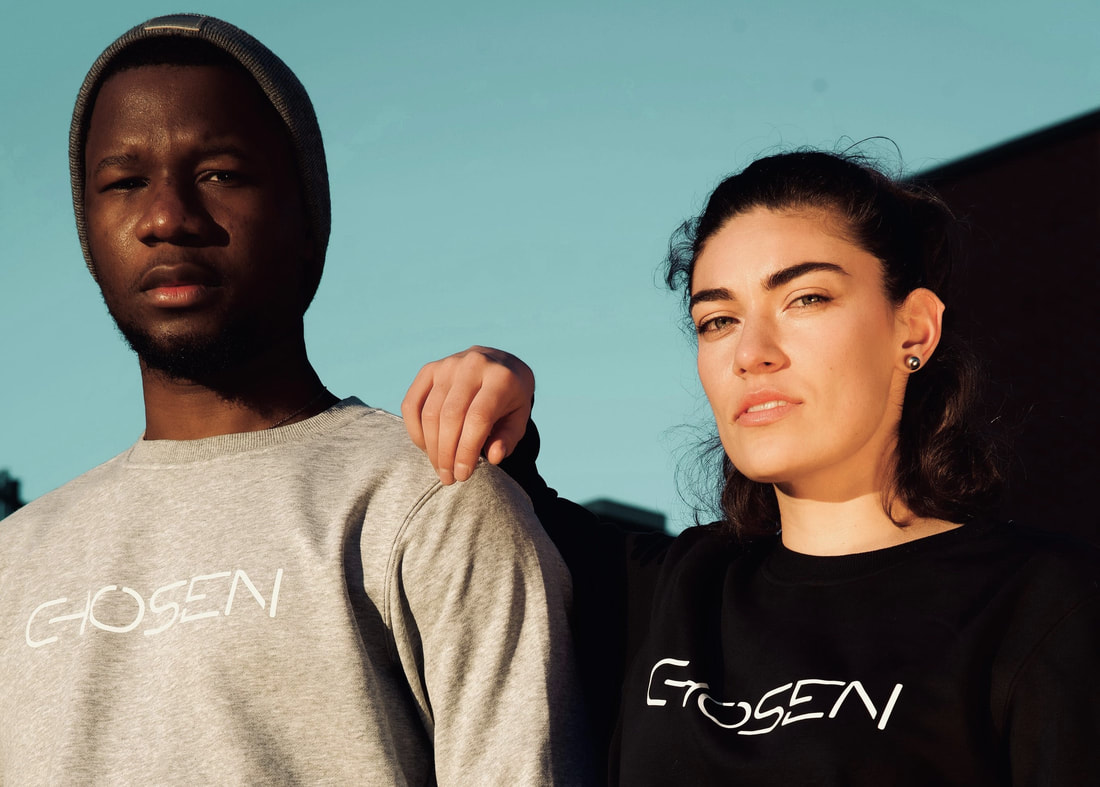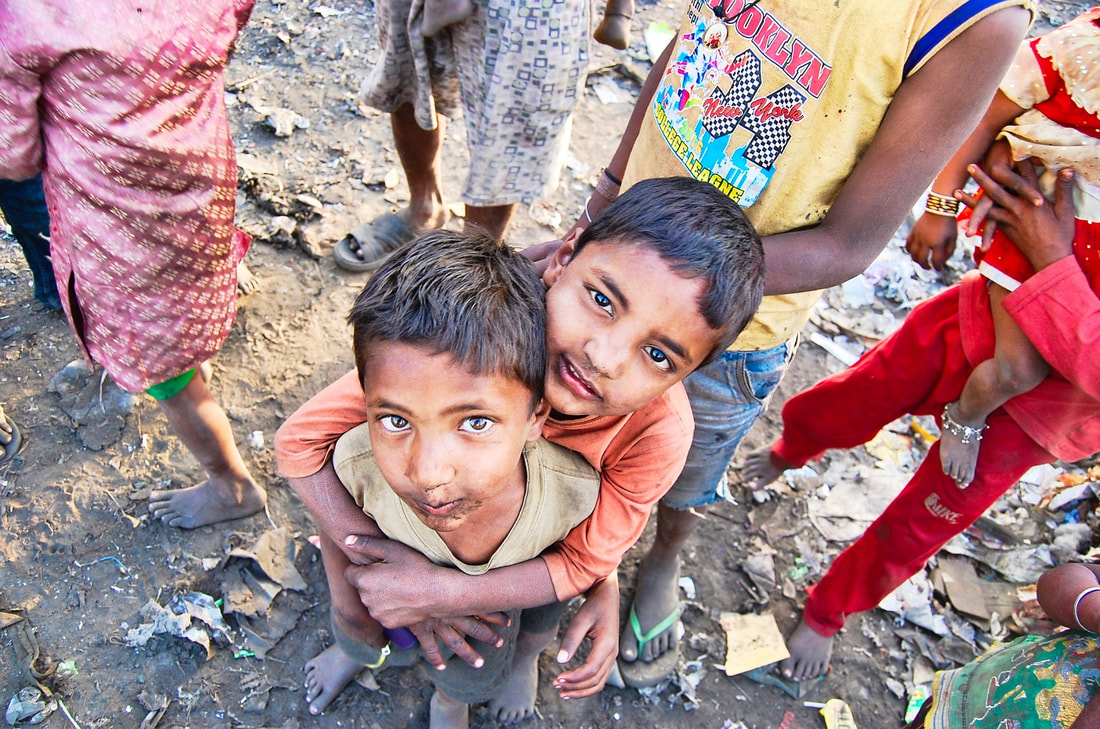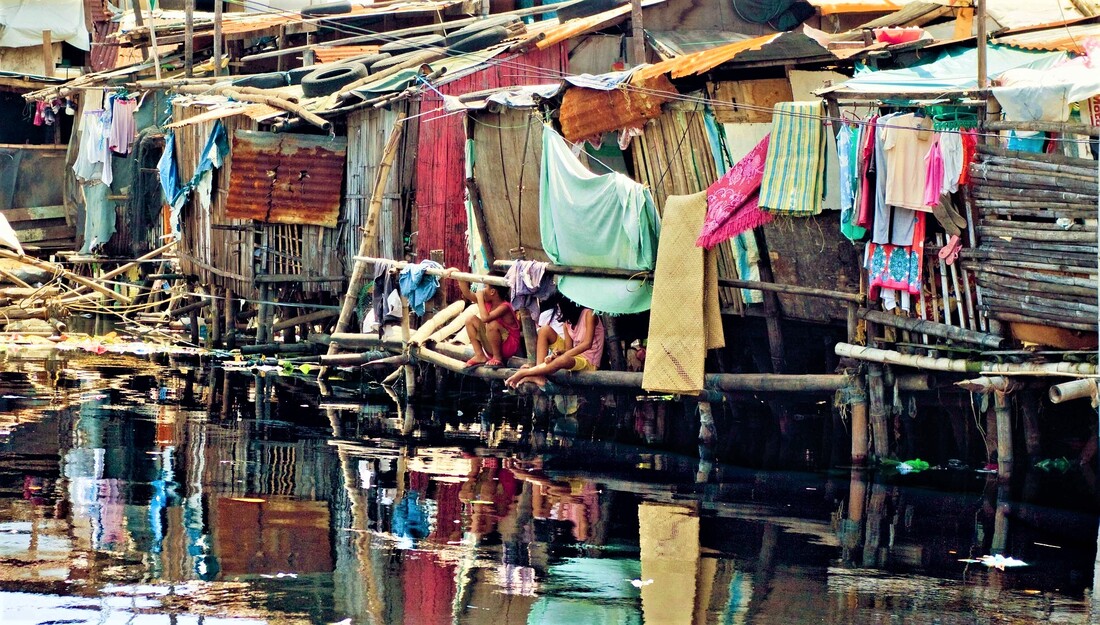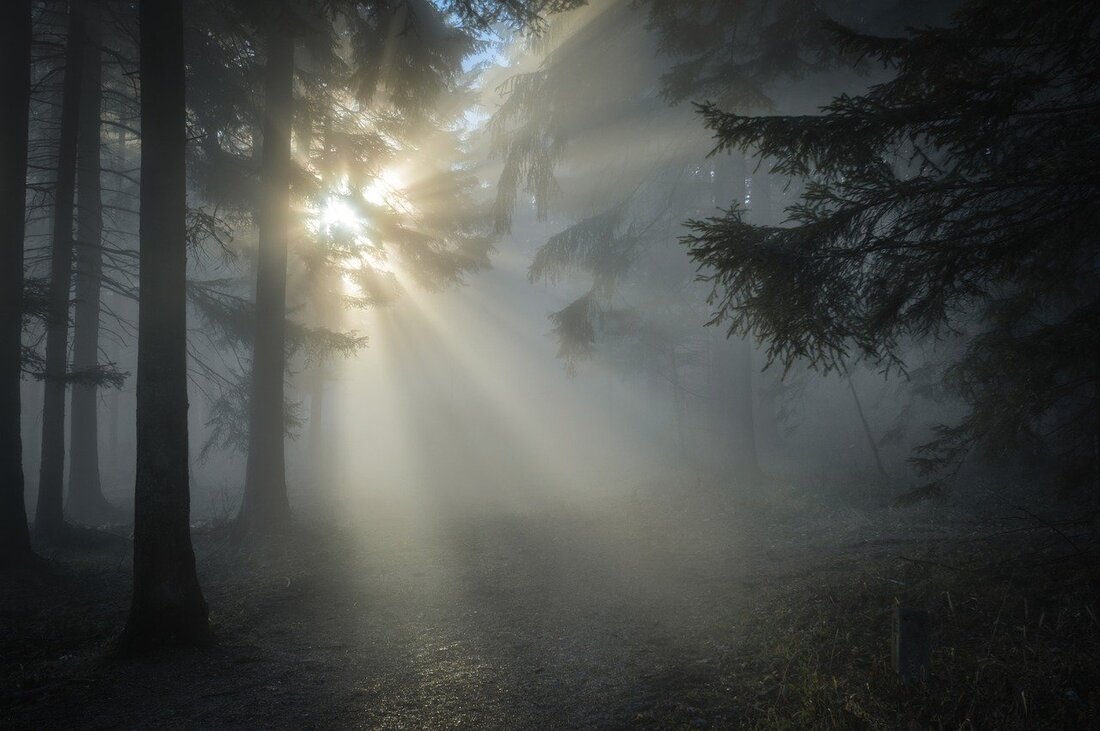|
‘The arrival of Jesus in our lives is not just something that happened 2000 years ago. It still happens now.’ (Steve Sutton) 20,000+ people gathered in London to demonstrate against horrific human rights abuses in El Salvador. A friend, Paul, and I travelled down by coach from the North East of England wearing our protest-style combat jackets and keen to add our own voices to the crowd. A large number of people were assembling in Hyde Park, the starting place, with various organisers moving among us to arrange the procession. Suddenly, Paul and I were approached by the leaders to carry a large banner at the very front of the march. We were astonished that, out of so many thousands of protestors, they chose us. God chose us. We were and are nobodies, yet as a new follower of Jesus at age 21, it felt like Jesus was walking with us, among us. Spotters on embassy rooftops monitored and took photos through long camera lenses. Our image appeared on the front cover of a well-known human rights magazine. On arriving at Trafalgar Square, the police mysteriously allowed only Paul and me through the cordon to sit at the foot of the speakers’ platform. 2 years later, I was chosen to meet the main speaker at a secret rendezvous in a basement flat in Islington, but I could never have imagined that at the time. On moving to London a few months later, I attended a vigil at St James’ Church, known for its firm stance on behalf of the poor and oppressed in the world. We were there to mark the inspiring life yet brutal assassination of radical follower of Jesus, Archbishop Oscar Romero. By God’s mysterious design, I discovered that I was sitting beside the Nicaraguan ambassador. At the end of the service, a Spanish nun, passionate follower of Jesus and human rights activist chose me to come forward, a lone stranger, to have my photo taken with Salvadorean refugees. She and I became life-long friends. Some 40 years later now, I’ve had the humbling privilege of witnessing and experiencing so many more such miracles than I could ever count or recount. I don’t know or understand why God chooses us but I’m glad and grateful that he does. When he does, it feels to me like a Divine voice that calls out from within and beyond, that we hear and experience as a realisation. Hitherto 'coincidence' takes on a deeper significance. As we approach this Christmas with all that it holds for us and the world, the arrival of Jesus in our lives is not just something that happened 2000 years ago. It still happens now.
14 Comments
Christ-mas. A celebration. Jesus who brings ‘good news to the poor’. What is that good news? That God has sent a Saviour into the world who stands with us, in whatever our circumstances, transforming our helplessness into hopefulness. Thank you to everyone who has been willing to stand with the poor and most vulnerable this year, and alongside me too. The Spirit of Jesus be with you this Christmas time! Advent is – arrival. I bought an Advent calendar for some refugee friends in the UK recently. It was the first time they had seen one and they were intrigued by its idea of opening numbered doors, or windows, as a countdown…to what? For followers of Jesus, the deeper question is to Who. Advent signals the arrival of Jesus in the world, the Saviour who shines dazzling-divine light and dispels spiritual darkness. It’s a celebration, anticipation and invitation to radical faith, love and hope. Jasmin, a Filipina, spoke today – a voice of the poor, a lived experience of the poor, from among the poor: ‘The poor feel invisible. To discover that God sees us, that he truly loves us, is the greatest gift.’ She’s working hard to provide Christmas gifts for children in a slum community who live beside an open sewer, whose makeshift homes were burnt down in a fire last week. She lives Advent by arriving with Jesus in dark places so that the poor and vulnerable experience God’s love as real. Whatever Advent means to you this Christmas: Light shines in darkness. Remember the poor. ‘To the existentialist, life is like a small child, lost and alone in a deep, dark forest. And the child means nothing to the forest.’ (Peter Hicks) Hicks’ bleak depiction of the human condition, of an unresolvable existential angst that we face and experience as we find ourselves thrown into this world, is a despairing vision of life without hope. It reflects vividly Jürgen Moltmann’s view that ‘hell is hopelessness’. Yannick Jacob comments that, ‘there is a way to live without this anxiety, at least temporarily, by deceiving ourselves, by closing our eyes to some of the realities of our existence.’ It’s as if we can numb the pain, make ourselves feel better for a time, by distracting ourselves, or drugging ourselves, to feel safer and more alive. This is, perhaps, a deep root cause of addictive behaviours, of aligning ourselves with extreme positions, of engaging in some forms of extreme sports or of taking medication that seeks to dampen our too-painful-to-handle thoughts and feelings. Instead of being willing to pause, pray and peel back the curtains to reveal what may lay behind our personal and cultural actions and routines, we grip and hold them tightly shut. Over a lifetime, we glue them, stitch them and tape them together. We build barricades to support them, reinforce them and hide them, even to ourselves. Out of sight, out of mind. At least for a while. Sooner or later, we may inadvertently catch a glimpse, experience an unnerving feeling, find ourselves fighting, falling or failing as the walls creak, crack and start to crumble down. It could be sparked by an accident, a break-up, a failed promotion, an illness, a mid-life crisis, a war. Our defences are weakened, no longer able to withstand the swirling, turbulent pressures that have built up behind them. It’s as if suddenly, as if by a flash of lightning, everything is revealed. Our self-assured confidence collapses and, perhaps for the first time, we experience terrifying vulnerability. This is the existential backdrop to the Christmas story: an intensely dark crisis that can’t be resolved with a quick-fix solution. For followers of Jesus, it’s a piercing and dazzling hope-filled account of a profoundly transformational encounter between God and humanity, where God takes the first step and enters our reality. When the Bible says ‘Light shines in darkness’, we catch a glimpse of radiant light, life and love now made possible. Whatever your experience as a coach, whatever the experience of your clients in 2021 – let’s face truth gently, with courage and humility – and make hope real. We walked past this little girl each day. She had the most beautiful smile. She worked at the front of a shop in the Philippines in a poor area, hoping that someone might stop and buy. She was very poor but never asked anything. She simply…smiled. I asked the Filipina I was walking with if we could buy this girl something special for Christmas. We did, and then returned to hand it to her. ‘This is a gift from Jesus, to thank you for the gift of your smile!’ She looked stunned, bemused and amazed. Her Mum, dressed in rags, teased us playfully. ‘Haven’t you brought me a gift too? Or are you saying my smile isn’t cute enough?!’ We all laughed. It was a moment of joy. We returned the next day and the little girl now ran up to us, brimming with excitement. She told us she had shared the chocolates with her younger brothers, but asked if it would be OK to save the baseball cap until Christmas. ‘I’ve never had a gift before, and I’d love to be able to unwrap a gift on Christmas Day!’ I almost cried. Whatever Christmas means for you this year: Light shines in darkness. Remember the poor. Gone are the days when we could think of ourselves, our teams and our organisations in splendid isolation. We now discover, abruptly at times, that everything is interconnected, everything is interdependent. We see impacts of global markets on domestic markets and vice versa. We see impacts of national and international policy on local people. We see sudden, unexpected changes that come out of nowhere, traceable only in retrospect, that dramatically shape our lives and work.
In the third sector where I’ve spent most of my professional life, we used to think of, say, human rights, international development and environmental issues as completely separate. We now see them as integrally related. Make a change in one area and it impacts on people and communities in another area - or in another part of the world. We can’t always see the connections but we can certainly feel them. This makes the world more complex, less predictable, less certain. A pervasive atmosphere of complexity and uncertainty can evoke personal, social, economic and political anxiety. Leaders and ideologies are emerging across the globe that offer simplistic solutions, often at the extremes, that create a comforting illusion. They may help us sleep more peacefully, live more purposefully. Yet they ignore, dismiss or suppress aspects of reality that don’t fit their simple narrative. To break free from this, we must learn to surface and live with uncomfortable truths. A stark example: witness the rhetoric in the UK and other Western nations this year in the face of unplanned, large-scale migration into Europe. Social media is filled with heated debate. ‘They’re all helpless refugees – rescue them!’ vs ‘They’re all terrorist sympathisers – reject them!’ It poses an either-or, black-white choice. To say, ‘It’s complicated. It calls for a sophisticated response’ sounds like a cop out, a refusal to take sides, a stance devoid of passion, a betrayal of a cause. So we find ourselves facing an existential crisis, created and fuelled in part by a perfect storm of influences. These include: spread of Islamic extremism, growth in right/left wing nationalism, intolerant illiberal liberalism, gross economic inequality, unprecedented global awareness via the internet, powerful social media, more failed states, huge displacement of people, alarming climate change. It can feel perplexing, confusing, debilitating. How to take a stance in the midst of all this? Adrian Spurrell (Synapse Solutions), my professional mentor, has been a persistent voice of challenge and support this year. ‘We can be driven by fear or by hope. Choose hope.’ It reminds me of hope in the Christian gospel too – a faith I experience as real – when we affirm the birth of Jesus Christ. It’s a mysterious faith that holds onto hope, is held onto by hope, often in the midst of hope-lessness. May we know peace and hope this Christmas time and the courage to stand in 2016. It’s Christmas Day and I could have better used the title Christmas mess-edge for this short piece. The story of Jesus Christ isn’t just a sweet and sentimental account of a baby boy born in Bethlehem 2000+ years ago. If it’s true, it’s about God entering the very real messiness of our lives and world and offering the potential to transform them into something completely new. Something beyond our wildest dreams, hopes or expectations. Something that stretches and transcends the boundaries of all human existence and experience.
I’ve known something about this notion of stretching boundaries over this past year, about extending the edges of my own experience. I bought a new bike in the spring, challenged myself to cycle over 1000 miles in 6 months and over 50 miles in a single ride. I had never done anything like that before and yet I did it. I also challenged myself to swim 1 mile 3 times in the same week. And I did it. It felt like I had crossed over an important physical and psychological line, achieving things that had previously felt impossible for me. I wrote and had published my first article with the British Association for Counselling and Psychology (BACP). I’d written lots of articles for different publications before but this felt like the next step up in a professional field that sits close to my heart. The editor of Coaching Today invited me to write on spirituality and I jumped at the chance. To top it off, I did my first ever series of radio interviews on spirituality too. It was a great opportunity and a novel experience so sit in a recording studio and to share my beliefs openly on air. And if that was the end of the story, there would be no need for a Jesus, at least for me. But it’s far from the end. I’ve struggled and failed on so many fronts. Sometimes, I haven’t even struggled when I have known I should. I’ve known deeply and personally what Francis Spufford aptly calls the universal ‘human propensity to f* things up’ (Unapologetic, 2013). At times, I’ve failed in relationships, made mistakes at work, fallen short of my own standards, spoken when I should have kept quiet and kept quiet when I should have spoken. What’s more, one of my closest friends has fought courageously with terminal illness. I’ve felt hopeful and helpless, trying to offer support where I could yet knowing I can’t make it OK. I’ve yearned to take the anxiety away but known that I can’t. I’ve watched Syria in the news, the damage that human beings are able to inflict on each others’ lives, on whole countries and regions. I’ve felt impotent and confused. Not all the time, but enough to know that redeeming the world is something I can take part in yet, ultimately, lies well beyond me. And so as I reflect on Christmas, I know what it is to be an aspiring yet fragile human being. I’ve felt exciting moments on the edge of success and have known what it is to screw up and need forgiveness. I have felt the amazing love of others, often undeserved yet tangible all the same. At that first nativity, I believe God himself entered the messy complexity of our lives and world with the most profound message of love and hope possible. Not just in words but in a life well-lived and a promise of presence and eternal life. Merry Christ-mas! |
Nick WrightI'm a psychological coach, trainer and OD consultant. Curious to discover how can I help you? Get in touch! Like what you read? Simply enter your email address below to receive regular blog updates!
|








 RSS Feed
RSS Feed